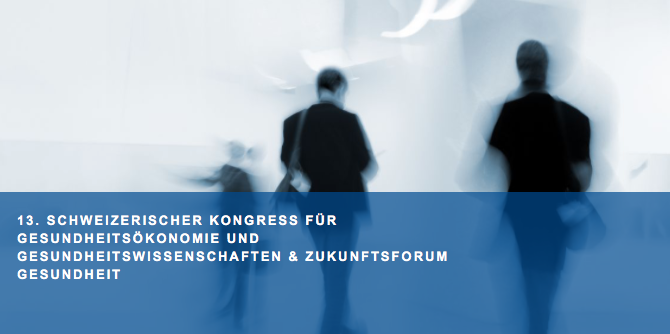Planning for a purposeful, meaningful retirement is shown to increase life expectancy and a sense of happiness. But so many of us fail to plan effectively. In this post, Uliana Shchelgacheva (Executive MSc Behavioural Science) considers if the careful use of behavioural insights by late-stage career services could support future retirees to make well-informed, and happier, decisions about this important part of life.
As part of my studies, I was involved in a group exercise to support my classmate’s decision-making process. He pondered the best way he could spend his retirement so that it would be active and purposeful, and so he would stay physically and mentally fit, maintain his sense of social identity and be happy in this life chapter.
Due to our limited capacity to make sensible decisions far into the future, planning for retirement is not an easy task, and can cause significant levels of stress to those who approach it (Wang & Shi, 2014). Being present-biased (giving more attention to pay-offs that benefit our current situation), we can experience difficulties imagining our future needs. And due to a tendency to be inertia-prone, we also tend to go with the flow of events as they are, even if they might negatively impact our future (Hertwig & Grüne-Yanoff, 2017; Kahneman, 2013).
Deciding on how to spend our retirement effectively happens once in our lifetime and we cannot benefit from past experiences or intuition (Kahneman & Klein, 2009). As such, future retirees could benefit from improved decision-making capability. How could behavioural science empower decisions that would result in purposeful retirement?
Leading a purposeful retirement positively contributes to increased life expectancy and the overall feeling of happiness in the daily experiences of the retirees (Ryff et al., 2016). While purposeful retirement means different things to different individuals, studies show a high correlation between retirees’ active involvement with either work or leisure activities and an increased sense of purpose (Lewis & Hill, 2020; Ryff et al., 2016). Moreover, control over retirement decisions and the ability to plan retirement ahead has been found to have a lasting positive impact on the psychological health of retirees (de Vaus et al., 2007; Yeung & Zhou, 2017).
Despite the benefits of planning for retirement in advance, many people fail to do so, only to find themselves looking for meaningful activities once already retired (Knoll, 2011). Faced with the ambiguity of this stage in life, we may underestimate the importance of retirement-related decisions, falling prey to the planning fallacy (Kahneman, 2013). While evident in suboptimal financial decisions, planning fallacy is arguably even greater with regards to activities during retirement, as unlike the financial aspects, questions about post-retirement activities appear unquantifiable, even more ambiguous, and less urgent. Faced with ambiguity, we tend to display inertia, or the status quo bias, opting to think about retirement “tomorrow” (Thaler, 2018). Studies show, that giving in to inertia may result in impulsive decisions as the retirement age draws nearer, leading to premature retirements, suboptimal financial situations, and lack of meaningful experiences (Bidewell et al., 2006; Knoll, 2011).
The challenge is to support retirement planning through addressing the planning fallacy and inertia. While outcome-oriented nudges, such as defaults, were found effective with maximizing retirement savings, decisions about devising purposeful retirement plans require behavioural interventions that increase our decision-making capability, encourage a structured and disciplined reflection, educate decision-makers, empowering as well as motivating them to plan retirement activities in advance. (Sunstein & Thaler, 2008).
So, how can we be more effective at planning for retirement?
Process-focused choice architecture interventions such as process nudges, educative nudges and boosts increase individual’s decision-making capability (Hertwig & Grüne-Yanoff, 2017; Soll et al., 2015; Sunstein, 2016). As opposed to outcome nudges that influence the context of a decision which a decision maker might not be aware of, process nudges are more transparent in preserving the decision-maker’s autonomy, encouraging System 2 thinking, and fostering decision-makers’ competence and motivation (Hertwig & Grüne-Yanoff, 2017; Soll et al., 2015; Sunstein, 2016). Lastly, process nudges provide relevant feedback to a decision maker, allowing for a process that encourages consistent follow up and a modification of behaviour as necessary (Kluger & DeNisi, 1998). Precommitment to a particular process is one of the process nudges that help tackle procrastination (Soll et al., 2015).
Another approach is temptation bundling, which combines instantly gratifying activities with the ones that require willpower and provide long-term benefits (Soll et al., 2015). This approach could be used as an enhanced precommitment, rewarding with pleasurable activities every step a future retiree takes towards their commitment to formulate retirement-related decision.
Educative nudges teach decision-making competencies and knowledge with regards to specific decisions, and thus, increase people’s decision-making capabilities (Peters, 2017; Sunstein, 2016). One way to educate future retirees is to present information highlighting the importance of planning retirement via a comparison of different retirement routes, portraying testimonies and statistics of overall wellbeing and life satisfaction ratings, physical activity and financial stability resulting from a rigorously planned versus an unplanned retirement (Peters, 2017). Here the suggestion is to maximize graphical and simplified display of information, making it more understandable and relatable for decision-makers (Edwards & Fasolo, 2001; Peters, 2017). This approach could address the planning fallacy by emphasizing the required effort and the importance of retirement planning.
Relevant information is not always sufficient to encourage action, however, particularly in relation to decisions that have a long-term and delayed impact (Hertwig & Grüne-Yanoff, 2017). Some people will refrain from planning their retirement because it is difficult to imagine a future self (Hershfield et al., 2011; Kahneman, 2013).
The challenge is to design nudges that would encourage the process of looking forward. For example, ‘aged’ avatars are one way to spur people’s imaginations in this way, helping people to accurately answer questions relating to identifying purposeful activities, future priorities and objectives, thus motivating future retirees to plan their retirement (Hershfield et al., 2011). Another example is asking people to write short essays answering the question “how will I be remembered?” (Zaval et al., 2015).
Realising the importance of retirement-related decisions, accurately imagining our future selves and not giving in to the status quo bias are the challenges that prevent effective decision-making with regards to retirement. In today’s volatile global economic situation with multiple layoffs faced particularly by those nearing retirement, late career stage services that use behavioural insights to support future retirees with their decision-making could increase people’s capability to make well-informed, bias-free and well-thought decisions, thereby dramatically improving their current and future subjective well-being.
If you would like to know more about a project that aims to help future retirees with their decision-making, utilising behavioural insights, please email u.shchelgacheva@lse.ac.uk for more information and to get involved.
Notes
- The views expressed here are of the author and not of the Department of Psychological and Behavioural Science or the London School of Economics and Political Science (LSE).
Bibliography
Bidewell, J., Griffin, B., & Hesketh, B. (2006). Timing of retirement: Including a delay discounting perspective in retirement models. Journal of Vocational Behavior, 68(2), 368–387.
de Vaus, D., Wells, Y., Kendig, H. A. L., & Quine, S. (2007). Does gradual retirement have better outcomes than abrupt retirement? Results from an Australian panel study. Ageing and Society, 27(5), 667–682.
Edwards, W., & Fasolo, R. (2001). Decision technology. Annual Review of Psychology, 52(1), 581–606.
Hershfield, H. A. L. E., Goldstein, D. G., Sharpe, W. F., Fox, J., Yeykelis, L. E. O., Carstensen, L. L., & Bailenson, J. N. (2011). Increasing Saving Behavior Through Age-Progressed Renderings of the Future Self. Journal of Marketing Research, 48(SPL), S23–S37.
Hertwig, R., & Grüne-Yanoff, T. (2017). Nudging and Boosting: Steering or Empowering Good Decisions. Perspectives on Psychological Science, 12(6), 973–986.
Hsee, C. K., & Hastie, R. (2006). Decision and experience: why don’t we choose what makes us happy? Trends in Cognitive Sciences, 10(1), 31–37.
Kahneman, D. (2013). Thinking, fast and slow (1st paperb). New York : Farrar, Straus and Giroux.
Kahneman, D., & Klein, G. (2009). Conditions for Intuitive Expertise: A Failure to Disagree. The American Psychologist, 64(6), 515–526.
Kluger, A. N., & DeNisi, A. (1998). Feedback Interventions: Toward the Understanding of a Double-Edged Sword. Current Directions in Psychological Science : A Journal of the American Psychological Society, 7(3), 67–72.
Knoll, M. A. Z. (2011). Behavioral and psychological aspects of the retirement decision. Social Security Bulletin, 71(4), 15–32.
Lewis, N. A., & Hill, P. L. (2020). Does Being Active Mean Being Purposeful in Older Adulthood? Examining the Moderating Role of Retirement. Psychology and Aging, 35(7), 1050–1057.
Peters, E. (2017). Educating good decisions. Behavioural Public Policy, 1(2), 162–176.
Robinson, D. T., & Anderson, A. (2018). Who Feels the Nudge? Knowledge, Self-Awareness and Retirement Savings Decisions. National Bureau of Economic Research.
Ryff, C. D., Heller, A. S., Schaefer, S. M., van Reekum, C., & Davidson, R. J. (2016). Purposeful Engagement, Healthy Aging, and the Brain. Current Behavioral Neuroscience Reports, 3(4), 318–327.
Samuelson, W., & Zeckhauser, R. (1988). Status Quo Bias in Decision Making. Journal of Risk and Uncertainty, 1(1), 7–59.
Soll, J. B., Milkman, K. L., & Payne, J. W. (2015). A User’s Guide to Debiasing (pp. 924–951). Chichester, UK: John Wiley & Sons, Ltd.
Sunstein, C. R., & Thaler, R. H. (2008). Nudge : improving decisions about health, wealth, and happiness (C. R. Sunstein (ed.)). New Haven : Yale University Press.
Sunstein, C. R. (2016). The ethics of influence: Government in the age of behavioral science. Cambridge, England: Cambridge University Press.
Thaler, R. H. (2018). From Cashews to Nudges: The Evolution of Behavioral Economics. The American Economic Review, 108(6), 1265–1287.
Thaler, R. H., & Benartzi, S. (2004). Save More TomorrowTM: Using Behavioral Economics to Increase Employee Saving. The Journal of Political Economy, 112(S1), S164–S187.
Wang, M. O., & Shi, J. (2014). Psychological Research on Retirement. Annual Review of Psychology, 65(1), 209–233.
Yeung, D. Y., & Zhou, X. (2017). Planning for Retirement: Longitudinal Effect on Retirement Resources and Post-retirement Well-being. Frontiers in Psychology, 8, 1300.
Zaval, L., Markowitz, E. M., & Weber, E. U. (2015). How Will I Be Remembered? Conserving the Environment for the Sake of One’s Legacy. Psychological Science, 26(2), 231–236.




Hi
Excellent article. As a financial adviser specialising in retirement advice, the use of nudges is an excellent way of helping our clients to reach their retirement goals.
It is true that workers tend to leave retirement planning until it is too late, however with the use of retirement planning software it is possible to guide clients into making appropriate decisions.
Kind Regards
Graham Bond